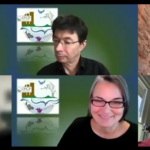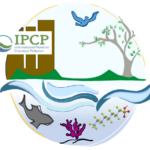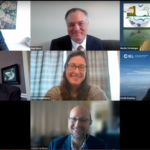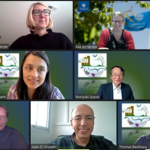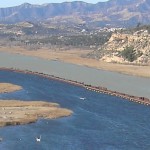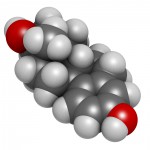The April 4th webinar is intended to provide input for the upcoming 3rd and last scheduled meeting of the Open-Ended Working Group for establishing a science-policy panel (SPP) on chemicals, waste and pollution prevention, which will take place in Geneva, June 17-21, 2024. read more
Clarification from UNEP regarding seeking accreditation of public universities
Independent science should serve as a foundational pillar in shaping policies for sustainable development. The IPCP champions the involvement of academic researchers in policy processes. At the global level, notable opportunities for academic input include participating as an observer in international negotiations such as the Plastic Treaty and the Science-Policy Panel on chemicals, waste, and pollution prevention. To participate in UN meetings, an organization need to be affiliated with an officially accredited UNEP organization. The prerequisites for obtaining accreditation status read more
IPCP Policy Briefs: Prerequisites for an Effective Science-Policy Panel on Chemicals, Waste and Pollution
The IPCP prepared two policy briefs as additional inputs to the second session of the Open Ended Working Group (OWEG-2) for the development of the Science-Policy Panel to contribute further to the sound management of chemicals and waste and to prevent pollution read more
Priority Setting Models for the New Science-Policy Panel on Chemicals, Waste and Pollution Prevention – Learning from IPCC and IPBES
The new intergovernmental science-policy panel (SPP) on chemicals, waste and pollution prevention is currently (2023–2024) being set up. The SPP will need a procedure for defining its work programme and identifying priority topics for its assessments. Possible models for this are the prioritization procedures of the Intergovernmental Panel on Climate Change (IPCC) and the Intergovernmental Science-Policy Platform on Biodiversity and Ecosystem Services (IPBES). IPCP analyzed the priority setting procedures of the IPCC and IPBES in preparation for the second session read more
Summary and Outcome: Uppsala Health Summit Workshop on “Towards an Intergovernmental Panel on Pollution and Toxic Waste”
Participants at the Uppsala Health Summit workshop “Towards an Intergovernmental panel on chemicals, waste and pollution” examined in detail several aspects related to procedures and operating principles of the Panel that in the eyes of the scientific community will ensure provision of sound and unbiased recommendations and will not delay decision-making processes. Their recommendations building on the experience available from the work of IPCC and IPBES and current challenges in the scientific community have been submitted to UNEP as an INF document for the OEWG 2 meeting in December 2023. read more
IPCP Policy Brief: Conflicts of Interest in the Assessment of Plastics – Addressing the industry’s role in the ongoing Plastics Treaty negotiations and the forthcoming Science-Policy Interface for plastic pollution
When developing the structure and scope for the international legally binding instrument on plastic pollution and its subsidiary bodies, it is of utmost importance to address the issue of Conflict of Interest. Treaty negotiations must be based on valid and reliable science to support evidence-based decision-making and to identify sustainable solutions. Including experts with a Conflict of Interest would compromise credibility and create a high risk of conflicting and/or incompatible outcomes and delay the effectiveness of the treaty. read more
IPCP Policy Brief: Conflicts of Interest in the Assessment of Chemicals, Waste and Pollution
When developing the structure and scope for the new Science-Policy Panel it is of utmost importance to address the issue of Conflict of Interest. Specifically, experts with a Conflict of Interest participating in the decision-making process and the core work of the Panel would come with a high risk of conflicting and/or incompatible outcomes or delayed implementation of solutions. read more
Science Letter: Obstacles to scientific input in global policy
A letter in Science, written by IPCP Board Members and colleagues, highlights obstacles to scientific input into UNEP processes including those on chemicals and waste. read more
IPCP Written Response on Operating Principles Governing the Work of the Science-Policy Panel on Chemicals, Waste and Pollution Prevention
At the ad hoc Open-Ended Working Group on the Science-Policy Panel (OEWG-1.2), the OEWG Secretariat was tasked with solicit written input regarding the operating principles governing the work of the Panel. IPCP recently provided its written input emphasizing the need for explicit inclusion of conflict of interest provisions. read more
IPCP Webinar Series: POPs in plastic and monitoring approaches
The IPCP is hosting a series of webinars, for a UNEP project, on persistent organic pollutants (POPs) and POP candidates in plastics. Part I of this webinar series (held on April 24 and 25, 2023) provided an overview on relevant POP groups (and other chemicals of concern) in plastics and some insights into related human exposure and environmental pollution including biota. Part II (on May 19) will introduce screening and sampling strategies of plastic categories potentially containing POPs, such as plastics in electronics and vehicles or recycled pellets. Part III (on May 22 and 23) will introduce extraction and clean-up methods of plastic samples for POP analysis as well as the instrumental analysis of the major POP groups. All participants must register. read more
IPCP White Paper
On the scope and functions of the future science-policy panel to contribute further to the sound management of chemicals, waste, and to prevent pollution. Prepared in January 2023. read more
Webinar: Unwrapping Conflict of Interest in Chemicals and Waste Governance
Thursday, January 26, 2023 at 4:30h CET (1.5 hour). This webinar aims to illustrate the role that private interests play in delaying actions that are intended to prevent adverse health impacts from toxic chemicals and waste. read more
IPCP Policy Brief: Options to holistically account for chemical pollutants threatening biodiversity
The IPCP prepared two policy briefs as additional inputs to the second session of the Open Ended Working Group (OWEG-2) for the development of the Science-Policy Panel to contribute further to the sound management of chemicals and waste and to prevent pollution read more
Workshop Recording: Global Chemicals & Waste Management: Grand Challenges & Opportunities
Model letter to policymakers requesting support for a global science-policy body on chemicals, waste and pollution is available in English, Arabic, Chinese, French, German, and Spanish. read more
Statement on the Registration of Polymers under REACH and List of Signatures in Support
This statement calling for more transparency on polymers marketed in the EU continues to be open for signatures. read more
[CLOSED] Sign-on Campaign: Developing a global science-policy body on chemicals and waste
The IPCP sign-on campaign to voice support for establishing a global science-policy body on chemicals and waste, akin to the Intergovernmental Panel on Climate Change and the Intergovernmental Science-Policy Platform on Biodiversity and Ecosystem Services.
Nearly 2100 scientists & practitioners from over 90 countries have signed-on. read more
Strengthening the Science-Policy Interface in International Chemicals Governance
Over the next two decades, global chemical production is set to double, primarily outside of developed countries. Governments and stakeholders from industry, academia and civil society strive to address safety concerns and manage the risks associated with the production and use of chemicals and their hazardous wastes. The sound management of chemicals and waste is an important component to achieve sustainable, inclusive, and resilient human development as defined in the Sustainable Development Goals by 2030. However, the Strategic Approach to read more
List of Signatures Supporting the ‘Zürich Statement on Future Actions on Per- and Polyfluoroalkyl Substances (PFASs)’
In August of 2018, the ‘Zürich Statement on Future Actions on Per- and Polyfluoroalkyl Substances (PFASs)’ was published in the journal Environmental Health Perspectives based on the discussions held during a two-day workshop in November of 2017 in Zürich, Switzerland. More than fifty international scientists and regulators met with the aim to help address the challenge of PFASs by outlining a set of needs, goals, and actions to cooperatively work toward a more efficient and effective assessment and management of PFASs. Names read more
Endocrine Disrupting Chemicals (EDCs)
Some chemicals frequently used by consumers can affect the endocrine (hormonal) system, which may lead to adverse effects. These chemicals are known as Endocrine Disrupting Chemicals (EDCs). For example, some of these EDCs may interfere with the developmental processes of humans and wildlife. They represent a challenge, as their effects depend on both the level and timing of exposure, being especially critical when exposure occurs during development. Among chemicals used in applications such as pesticides, flame retardants, plastic additives, and read more
Challenges for POPs Monitoring (COP Side Event)
“Challenges for POPs monitoring – how can we use international synergies to support the effectiveness evaluation under the Stockholm Convention (SC)?” was the topic of a side event organized by the IPCP at the Sixth Meeting of the Conference of the Parties to the Stockholm Convention in Geneva, Switzerland. read more
Planetary Boundaries for Chemical Pollution (Workshop)
In 2009, Rockström et al. published a paper on “A safe operating space for humanity”. They covered 10 anthropogenic stressors of global relevance, such as climate change, stratospheric ozone depletion, ocean acidification, and also chemical pollution. Rockström et al. propose to define a “safe operating space for humanity” in terms of acceptable levels of these global stressors (“planetary boundaries”). They discuss thresholds for several of the stressors, but for chemical pollution they state that the threshold is still to be determined. read more
Training on Risk Assessment of Chemicals (SAICM QSP Project)
The IPCP is the executing agency for a SAICM QSP Project in collaboration with the governments of Armenia, Chile and Ghana. The title of the project is “Training on risk assessment for chemicals at national level in a global context”. The project commenced in July 2010 and will end in September 2014. The final synthesis workshop will be held in Stockholm, Sweden, in June 2014. The project aims to make available various methods, tools and databases for chemicals assessment to interested stakeholders in the participating countries. read more
The Berlaymont Declaration on Endocrine Disruptors
The European Commission is currently drawing up plans for the regulation of endocrine disrupting chemicals. Many interest groups have already commented on these efforts. Motivated by concerns that regulation should follow the best of the available science, scientists actively engaged in researching endocrine disrupters have drawn up the 2013 Berlaymont Declaration, see here: Text of the Berlaymont Declaration on Endocrine Disruptors with signatures as of 22 October 2013 The declaration derives its name from a June 2012 meeting in the read more
San Antonio Statement on Brominated Flame Retardants
On October 28, 2010, the San Antonio Statement on Brominated and Chlorinated Flame Retardants was published on-line by Environmental Health Perspectives, see http://www.ehponline.org/article/info:doi/10.1289/ehp.1003089. The Statement appeared in print in December 2010 in Environmental Health Perspectives. San Antonio Statement on Brominated and Chlorinated Flame Retardants Joseph DiGangi,1 Arlene Blum,2,3 Åke Bergman,4 Cynthia A. de Wit,5 Donald Lucas,6 David Mortimer,7 Arnold Schecter,8 Martin Scheringer,9 Susan D. Shaw,10 and Thomas F. Webster11 1 International POPs Elimination Network, Berkeley, California, USA; 2 read more
